I met Shannon Litzenberger flying home from the world’s largest consumer paddlesports show. She was returning from a conference at a remote island retreat center.
Litzenberger is an award-winning contemporary dancer and choreographer. Cool. But she’s also a freelance strategist, policy thinker and leadership developer.
“If our collective task is to imagine and co-create a better world for future generations, what role does culture play in this project?” she asked me.
I shrugged. I hadn’t thought about the culture of the paddlesports business in a long time.
“The culture we abide by today—including the stories we live by, our normative behaviors, rituals, metaphors and codes of belonging—has produced the world we live in now,” she added.
I walked off flight AC1900 wondering how Litzenberger’s ideas on a culture of collective thriving and leadership could work in our world. If Litzenberger attended the Paddlesports Trade Coalition Colab in Oklahoma City, what leadership capacities would she help us develop to navigate the many intersecting crises we face today?
The real problem with paddlesports
I helped curate the opening panel discussion at the PTC Colab. I asked longtime paddling industry professionals what they thought our greatest successes and failures had been in the first 50 years. What should we keep doing? What should we leave behind?
I realized that during the early years, the culture of the paddlesports industry wasn’t too far from paddling culture. We were creating an industry, one new paddler at a time. Driving sales, as we say these days, went like this: Meet people at the water with a trailer full of boat and gear samples. Take them down a river, across a lake or along an ocean shoreline. As Litzenberger would say, “These sensory capacities—attuning with the world around us, paying attention so we might discover beauty, awe and inspiration—is what helps us all understand how to be in relationship with ourselves and our world in a good way.”
Boat orders wrote themselves.
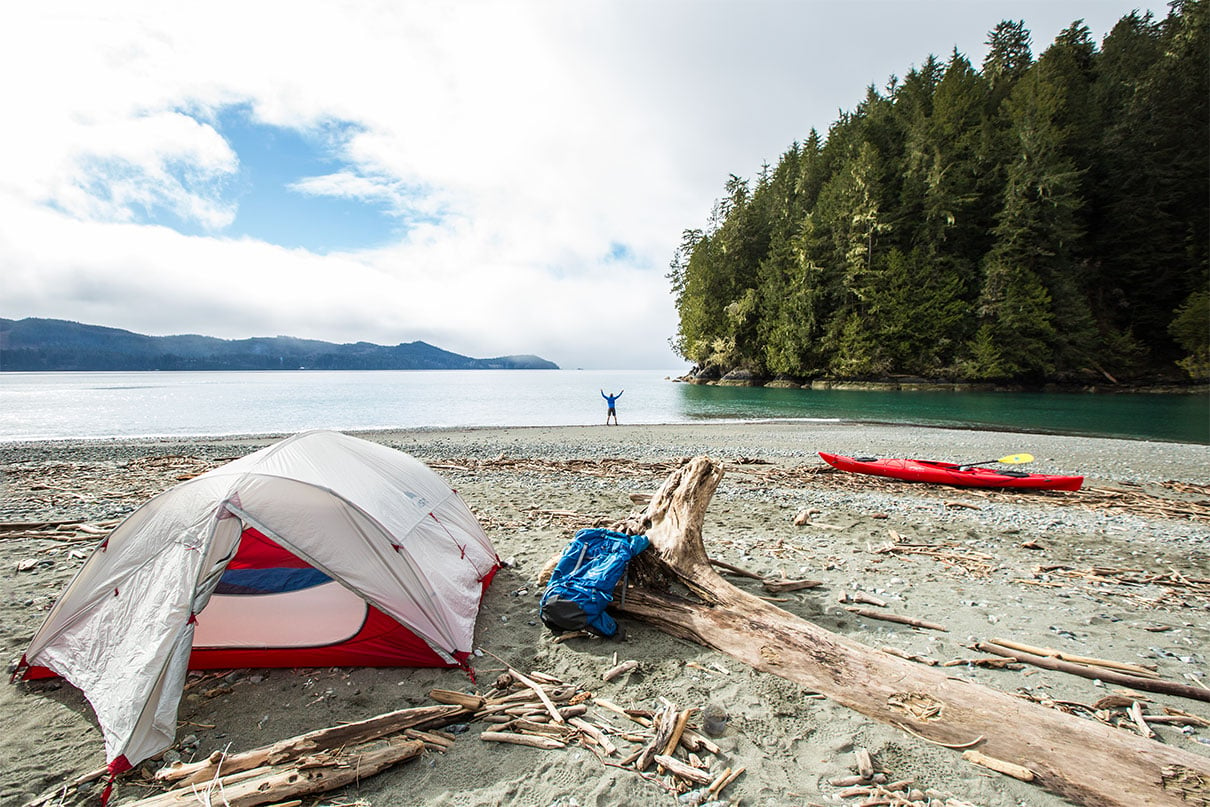
For years, industry leaders gathered in Salt Lake City for Outdoor Retailer’s Summer Market. They didn’t gather around a table, per se, but there were enough carpet conversations among company owners to develop new ideas and plant seeds for the industry’s future.
Between sales meetings, fiercely independent-minded, highly competitive leaders of the top paddlesports brands and scrappy startup entrepreneurs discussed industry issues. Yet, the core culture remained virtually unchanged.
Today, we have MBAs parachuting in to maximize returns for shareholders or plum profits for a quick flip of the company. Companies who are experts in plastics manufacturing look at boats as new line items in revenue forecast spreadsheets. Meanwhile, the rest of the industry is forced to adapt, or feel like they should adapt, a business culture that never had any business in the business of paddlesports.
Selling more was a by-product of sharing what we all loved with more people. Investors understood the connection to the water and believed what we believed. Twenty years ago, nobody was hired into sales or marketing roles because they were expected to double revenue in two years. They were hired because they understood what paddlesports meant to customers.
“As soon as we foreground industry and background the experiences we are trying to bring to life, we screwed up.”
— Shannon Litzenberger
Revlon’s co-founder Charles Revson used to say, “In the factory we make cosmetics; in the store we sell hope.” The day the beauty industry stops selling hope is the day consumers start asking why they are spending $40 on tiny tubes of wax, oil and pigment.
“As soon as we foreground industry and background the experiences we are trying to bring to life, we screwed up,” says Litzenberger.
I don’t know what kind of paradigm-shifting changes will be tabled at the inaugural Paddlesports Trade Coalition event. But I do know we aren’t selling as many boats and boards as we were during the bonkers years of the pandemic.
Participation during lockdown grew because people connected with themselves and the natural world. And they bought boats, boards and all the fixings. They bought everything we could make. They didn’t care about color. They didn’t haggle on price.
Litzenberger asked me, “How would the paddling industry organize itself differently if all that was needed were simple invitations to experience beauty, awe and a connection to the elements?”
I don’t know how exactly, but the who behind any paradigm-shifting cultural change is easier to find. You’ll find the answer stuck to the bumpers of station wagons and pickup trucks anywhere there’s water.
“The world is run by those who show up.”
Scott MacGregor is the founder of Rapid Media.
Why we’re here. | Feature photo: Ryan Creary



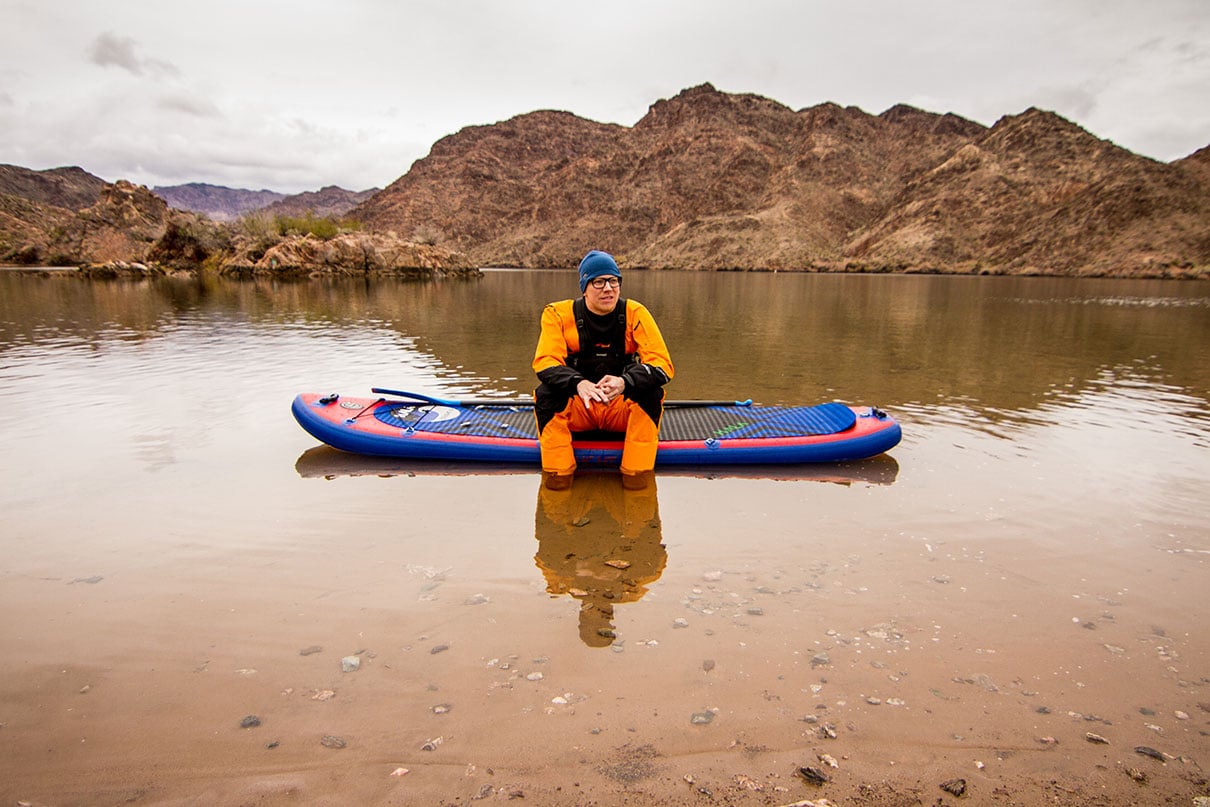
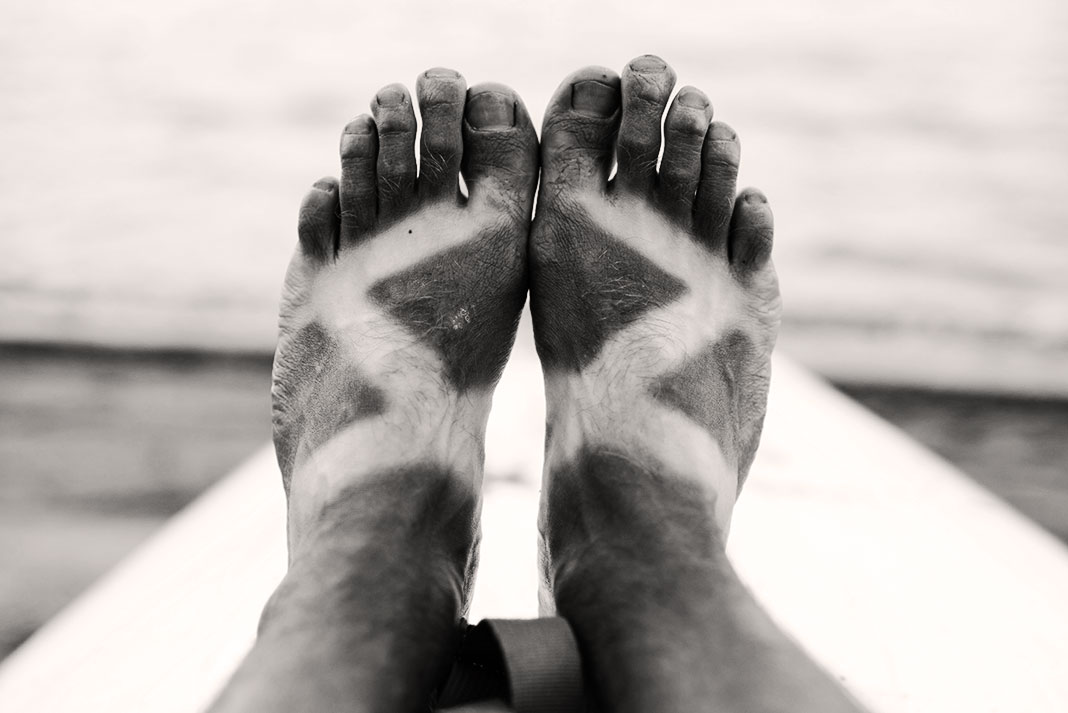
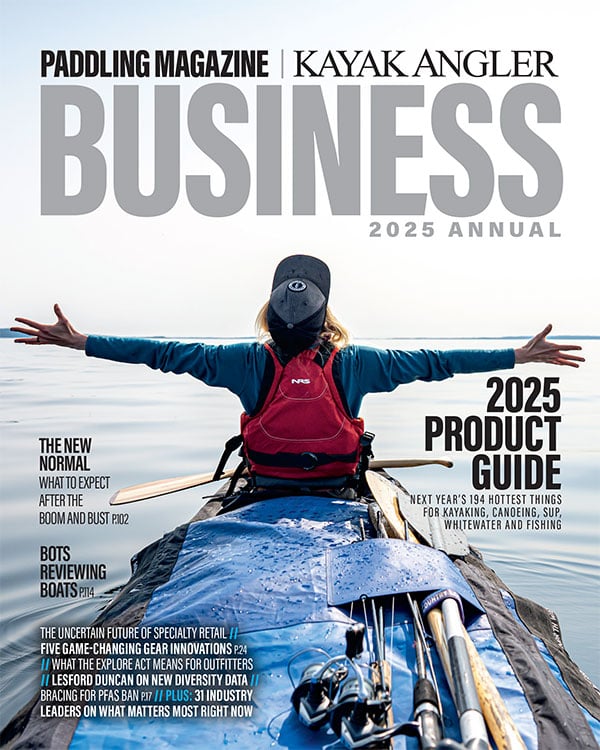 This article was first published in the 2024 issue of Paddling Business.
This article was first published in the 2024 issue of Paddling Business. 


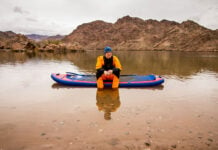


Interesting. Let’s see who shows up. I bet it’s those who focus on building relationships and community. Of course, maybe I am wrong and it’s better to point fingers and complain about everything that’s wrong in the world. Seems to be working so far…